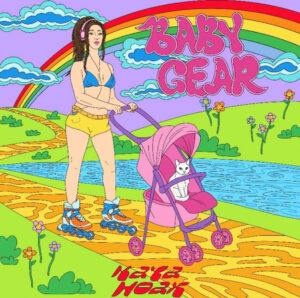Littering on UK beaches is linked to location more than weather as research reveals new insights

The Gini Index, a graph system originally designed to measure income inequality, also offers an effective way to analyse patterns of beach littering, research from EHL Hospitality Business School reveals.
Dr. Yong Chen analyzed the survey data of litter counts collected by the Marine Conservation Society (MCS) of the UK on more than 1,800 beaches in the UK from 2000-to 2016, to generate graphs that show the prevalence of certain kinds of rubbish over time.
The results showed that plastics were the most evenly distributed type of litter, while refuse ceramics and medical supplies were more concentrated in specific areas, suggesting the distribution of all litter on beaches is driven by the distribution pattern of plastics.
Furthermore, Chen found that beach location had a significant effect on the distribution of litter, meaning that the Gini coefficient of beach litters varies across geographic regions of the UK, but weather and seasonality were of negligible importance.
The Gini coefficient, along with Lorenz curve, allows researchers to look at a range of factors, such as location, seasonal variation, and climate, to analyse their effects on litter distribution and show emergent trends.
Studying the trends can inform policy-making. For instance, plastics are a more widely dispersed issue, so targeting plastic refuse in public policy will lead to a significant change in the amount of litter on all beaches. But the catch is that eradicating plastics is extremely challenging not because they are most abundant, but because they are most evenly distributed.
This is an improvement on previous methods of analysing beach litter, which Chen says only offers “snapshots” of the problem.
“The wide applicability of the Lorenz curve in measuring distribution lies at its statistical generality and parsimony, which only rely on knowing the number of subjects in a population and each subject’s share with regard to an attribute of interest, say income or wealth,” says Chen.
It is crucial that national, regional, and local anti-litter strategies are as effective as possible because rubbish-cleaning is an expensive task. In the UK, beach cleaning undertaken by 40 percent of local authorities in 2010 cost £15.5 million.
Chen’s research, published in the journal Marine Policy, tests a more comprehensive approach to data-gathering which can increase the effectiveness of future policy-making.




